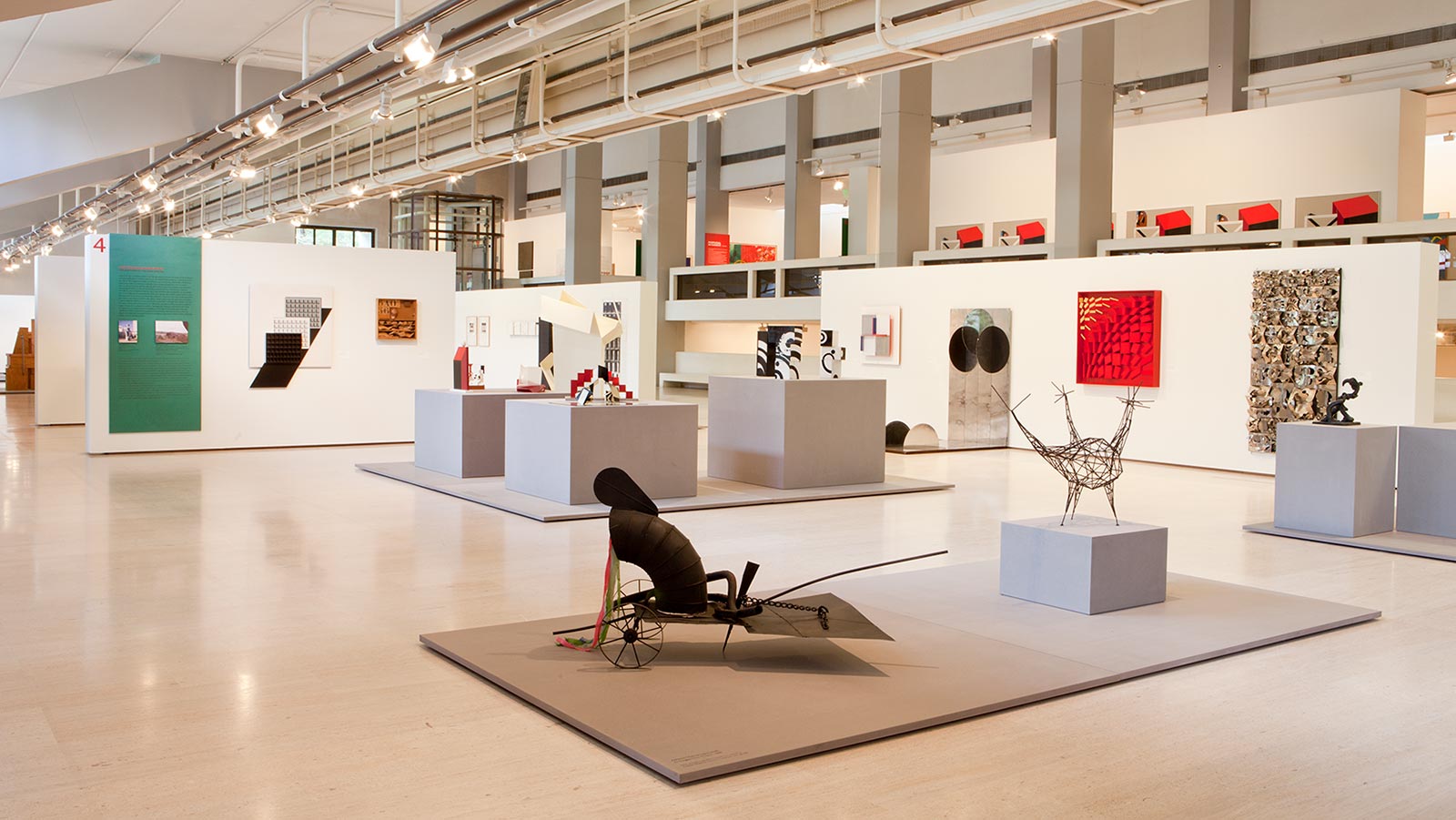History of Art Exhibitions
The most recent update (2018 – 2020)
Event Slider
Date
- / Cancelled / Sold out
Location
Auditorium 3 Calouste Gulbenkian FoundationThe team responsible for the Gulbenkian Foundation’s digital catalogue of art exhibitions presents its latest update, which includes the exhibitions held between 2018 and 2020.
In 2021, the Calouste Gulbenkian Foundation launched a digital catalogue listing the c. 1,400 exhibitions held by the institution since 1957. The catalogue documents the process of preparation for the exhibitions, including press releases, information on the key figures involved, images of the events and many other associated documents.
In this session, we present the latest version of the project, which relates to the years 2018, 2019 and 2020. Part of the programme of parallel events related to the exhibition Histories of a Collection. Modern and Contemporary Art from the CAM, this event invites two guests to share their thoughts: Marta Soares, researcher at the Institute of Art History of the Universidade Nova de Lisboa, and Nuno Faria, programmer and curator.
The event will also include the presentation of the digital publication O Tempo no Espaço. Exposições da Coleção do CAM 1983-2023 [Time in Space. Exhibitions of the CAM Collection 1983-2023], by Leonor Nazaré, which focuses on the various displays of the CAM collection from its opening to the present day, around 70 in total, interwoven with museological reflections on the context and how they fulfilled the CAM mission.
Speakers
-
Leonor Nazaré
Leonor Nazaré (Caldas da Rainha, 1963) has been a consultant and curator at the CAM since 1999 and has organised around 50 exhibitions. She has a PhD in Contemporary Art from the Colégio das Artes at the Universidade de Coimbra. She has been an art critic since 1989 and was involved in the management of the Portuguese section of AICA from 2004 to 2012. She has taught art modules at higher education level. She has written courses, conference texts and books on subjects relating to contemporary art. Since 2016, she has been in charge of the production of the art exhibition catalogue for the Calouste Gulbenkian Foundation.
-
Marta Soares
Marta Soares is a doctoral researcher at IHA — NOVA/FCSH (Institute of Art History at the Universidade Nova de Lisboa). Since 2015 she has worked on various exhibitions organised by the Calouste Gulbenkian Foundation. She was curator, with Raquel Henriques da Silva, of the exhibition Amadeo de Souza-Cardoso / Porto Lisbon / 2016 — 1916. Her main areas of research revolve around modernism, animation and the theory and methodology of art history.
-
Matilde Corrêa Mendes
Matilde Corrêa Mendes (Lisbon, 1984) is founder of the company MODO M, which specialises in developing digital research projects. She is currently executive and editorial coordinator of the online catalogues developed by the Calouste Gulbenkian Foundation (a ground-breaking publication in Portugal), Histories of Art Exhibitions by the Calouste Gulbenkian Foundation (since 2015), and the Catalogue Raisonné of the works of António Dacosta (since 2016). She was a producer at the Modern Art Centre (from 2012 to 2014) and in the studio of the artist Joana Vasconcelos (between 2010 and 2012).
-
Miguel Magalhães
Miguel Magalhães has been Director of the President’s Office since May 2022 and Director of the Gulbenkian Culture Programme since 2021.
He was based at the Calouste Gulbenkian Foundation’s Delegation in France between 2011 and 2021, as director from 2017.
-
Nuno Faria
Nuno Faria (Lisbon, 1971) is an independent curator and guest lecturer at the Escola Superior de Design in Caldas da Rainha and at the Escola das Artes at the Universidade Católica Portuguesa.
He worked at the Institute of Contemporary Art of the Portuguese Ministry of Culture (1997-2003) and for the Calouste Gulbenkian Foundation (2003-2009). He was artistic director of the José de Guimarães International Arts Centre, in Guimarães (2013-2019) and the Museu de Cidade in Porto (2019-2022).
The Calouste Gulbenkian Foundation reserves the right to collect and keep records of images, sounds and voice for the diffusion and preservation of the memory of its cultural and artistic activity. For further information, please contact us through the Information Request form.
